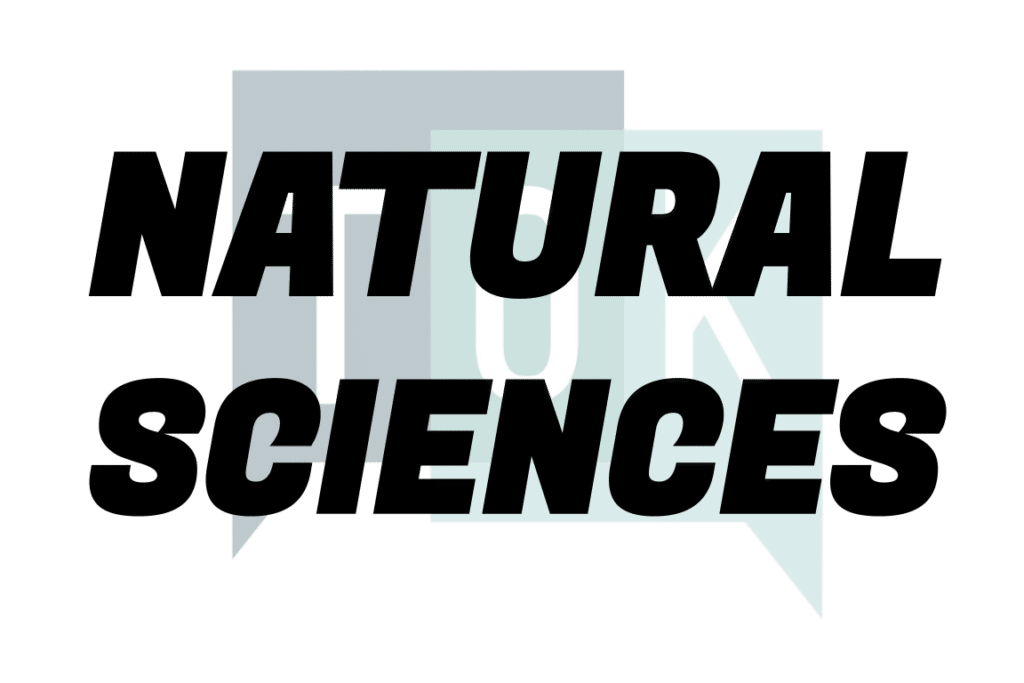
Welcome to the natural sciences section of the site. This page will help you to take ownership of the natural sciences via a quick overview, and four padlets that offer you quotes, knowledge questions, real-world issues, and key thinkers relating to this area of knowledge.
You can use this content both to understand this component of TOK, and support discussions and arguments that you offer in your essay and exhibition.
Natural sciences: a quick overview
The natural sciences are dedicated to the systematic exploration and understanding of the physical world and the laws that govern it. This area of knowledge encompasses disciplines like physics, chemistry, biology, and astronomy, that all seek to uncover the mysteries of the natural universe. This AOK links to many key concepts.
Certainty plays a central role in the natural sciences, as they seek to establish empirical and predictable patterns in the physical world. Explanation involves deciphering the underlying principles and mechanisms that govern natural phenomena. The concept of objectivity emphasizes the importance of unbiased observation and impartial analysis in the pursuit of scientific knowledge.
Two influential thinkers in the natural sciences from diverse backgrounds are Marie Curie and Albert Einstein. Marie Curie, a Polish-born physicist and chemist, made groundbreaking contributions to the study of radioactivity and was the first woman to win a Nobel Prize.
Albert Einstein, a German-born physicist, revolutionized our understanding of space, time, and the universe through his theory of relativity.
Contemporary issues in the natural sciences often revolve around ethical considerations and the responsible use of scientific advancements. Discussions about genetic engineering and CRISPR technology raise questions about the ethical boundaries of manipulating the genetic code and the potential consequences for future generations. Additionally, the exploration of climate change and sustainability underscores the need for scientific solutions to address urgent global environmental challenges.
Engaging with the natural sciences within TOK invites students to explore the wonders of the physical world, embrace the certainty of empirical evidence, and critically examine the ethical implications of scientific discoveries. It underscores the importance of objectivity, universal truths, and the ethical considerations inherent in the pursuit of scientific knowledge.
1 QUOTES Who wrote “Art is I; science is we”?
Explore these quotes on the natural sciences by a wide range of different thinkers. Which quotes are the most and least insightful? How they challenge our assumptions about natural sciences? What do they reveal about links between natural sciences and other aspects of the TOK course?
2 KNOWLEDGE QUESTIONS Is science characterised by content, or method?
Identifying and exploring knowledge questions (KQs) is at the heart of TOK, prompting us to reflect on our knowledge, evaluate whether it’s be based on a flawed or incomplete assumptions, and provide us with a focus point to improve our understanding of the world.
3 REAL-WORLD ISSUES Should organisms be named after humans?
These examples will help you to understand how TOK ideas manifest in the real-world, take ownership of natural sciences, link TOK to the latest global issues, and become an authentic critical thinker. They will also help you to justify and explore the discussions you offer in your essay and exhibition.
4 KEY THINKERS Is Stuart Firestein right that science develops haphazardly?
The thinkers in this padlet will help you to consolidate your understanding of the natural sciences, and challenge your assumptions about the world. You can also draw on their ideas to support your essay and exhibition discussions, and add depth and authority to the claims you make about knowledge.
HUMAN SCIENCES: DEEPER DIVES
Follow these links to access a range of notes, essays, and observations. Use them to research this AOK, and hone your essay arguments.

Subscribe to the free TOK newsletter!
Subscribe to our free newsletter, and collect fantastic examples to help you understand the key TOK ideas, support your essay and exhibition, and make you an authentic critical thinker.
You’ll encounter some of the most important thinkers from the past and the present, go beyond the headlines of contemporary events and issues around the globe, and see how TOK concepts manifest in the real-world. Subscribe HERE!